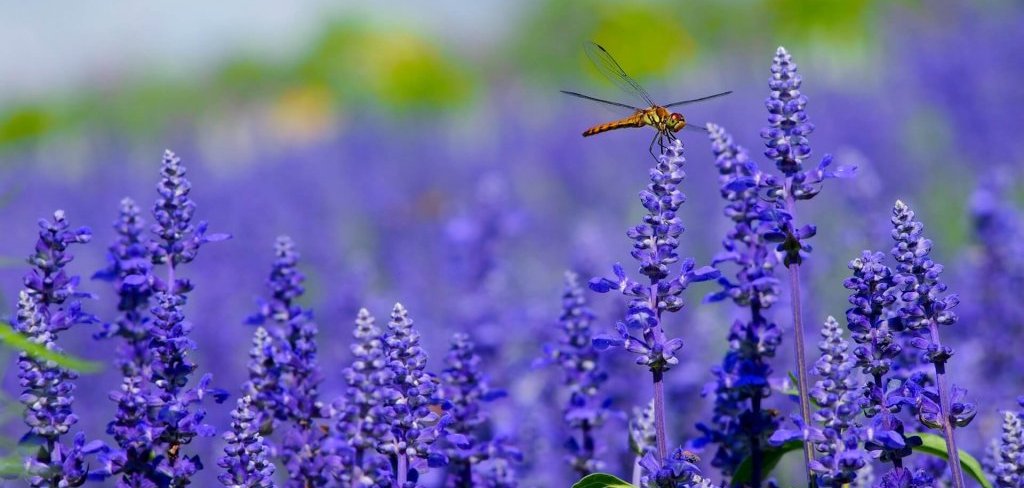What is Lavender?
You’ve smelled lavender before, even if you don’t know what the flower looks like. If you’ve ever shampooed your hair, washed your body, used perfume, rubbed on some lotion, or did the laundry — or you know someone who has — then you know what lavender smells like.
If you ever breathe in the scent of pure lavender essential oils, you’ll recognize it immediately. It’s the background scent to all our lives.
Lavender is the pop star of all essential oils. Its scent is light. It’s gentle on the skin. But it packs a powerful punch. Lavender is used everywhere, and everyone enjoys the smell.
The History of Lavender
Lavender is part of the mint family of plants. The use of lavender may have started in the Middle East and India about 2,500 years ago. Lavender’s name comes from the Latin word “lavare,” meaning “to wash.” Romans often added lavender to their soap and bath water for both the fragrance and its antiseptic capabilities.
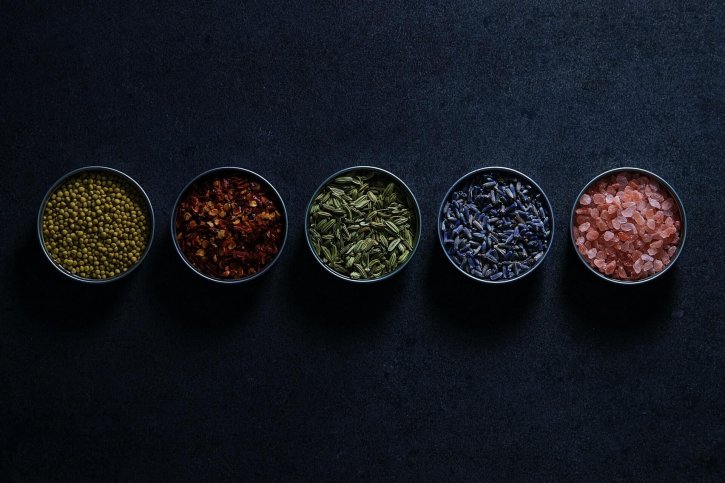
The Greeks used lavender in their lotions and for medicinal purposes. They also believed that lavender could be used to seduce others and make them fall in love. Thought to be Cleopatra’s secret weapon, lavender appears in her personal arsenal. It’s believed that Cleopatra incorporated lavender into her bath and beauty regimen to draw the attention of Julius Caesar and Mark Antony.
During the Middle-Ages, professionals used lavender both as a perfume and as an antibacterial medication. Glove makers would incorporate lavender into their product to keep away cholera and the plague. Doctors and herbalists also prescribed lavender as a way to treat headaches and mental illnesses. French doctors, especially, often prescribed lavender as part of aromatherapy treatment for anxiety.
The use of lavender isn’t limited to the West. In Asia, lavender is thought to cool a person’s “Shen,” or mind by relaxing and relieving tension. Lavender was and still is, used to treat bug bites, injuries, and skin irritations.
Lavender Benefits for Skin, Face, and Acne
In new skin products, lavender can be found everywhere. People think lavender is only added lotions and soap is for its soothing scent. However, lavender serves as more than just a pretty fragrance!
Eczema and Psoriasis
Lavender helps to ease eczema and psoriasis rashes. These two skin conditions can show up anywhere on the body, making skin itchy, dry, and scaly. For some people, eczema and psoriasis can be severe. Lotions and ointments containing lavender are thought to have antifungal properties, making them ideal treatments for skin irritations like eczema and psoriasis. Lavender can ease discomfort and heal the skin.
Acne and Balancing Oil
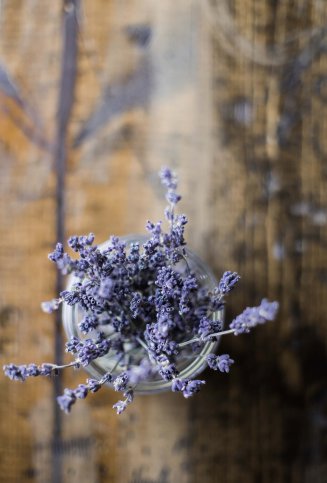
Whether you’re a teenager with oily skin or a middle-aged adult with dry skin, lavender can help get your skin balanced and smooth. Acne often occurs due to bacteria and excessive oil production. Lavender’s antibacterial properties can kill bacteria, preventing and clearing acne breakouts. It also balances oil production, preventing the skin from becoming too dried or too oily.
Brighten Dark Spots
Lavender can diminish uneven skin tone and remove redness. Lavender has anti-inflammatory properties and helps heal damaged skin. It can decrease sun damage discoloration, like dark spots and scars from burns. Lavender’s anti-inflammation abilities help relieve redness and blotchy skin, preventing capillaries from breaking.
Face Wrinkles
Wrinkles are a natural pet of getting older, but you don’t have to let them appear sooner than they have to. A reduction in elasticity, oils, and a collection of free radicals can cause wrinkles. Lavender helps to balance oils, remove free radicals, and renew elasticity—making skin look smoother and younger.
Healing Skin Injuries
Lavender is a natural way to help heal burns, scrapes, and other injuries by decreasing inflammation in those areas. Lavender contains beta-caryophyllene, which gives it its anti-inflammatory properties. By reducing inflammation, lavender lets wound healing nutrients into injured areas. Lavender’s antibacterial properties also keep wounds from becoming infected and leaving scars.
Bug Bites
Hiking out in the great outdoors can be much more tolerable if you use lavender. Lavender keeps mosquitoes, ticks, and fleas away. It can also help relieve itching and prevent infection in existing bug bites.
Burns and Sunburns
Burns can be painful and difficult to heal. Severe burns can lead to scarring. Lavender, however, can help relieve pain and diminish scar formation. Because lavender reduces inflammation, it can reduce pain at the burn site. Lavender also encourages tissue healing and smooths skin. Sunburns cause discoloration, but lavender keeps the skin from scarring or creating dark patches.
Lavender for Beautiful Hair
Lavender’s benefits extend to grooming and self-care. If you look at store shelves, you’ll find lavender as an ingredient in countless shampoos, lotions, and creams. It’s popularity isn’t just as a perfume. Lavender also nourishes the scalp and keeps hair lush.
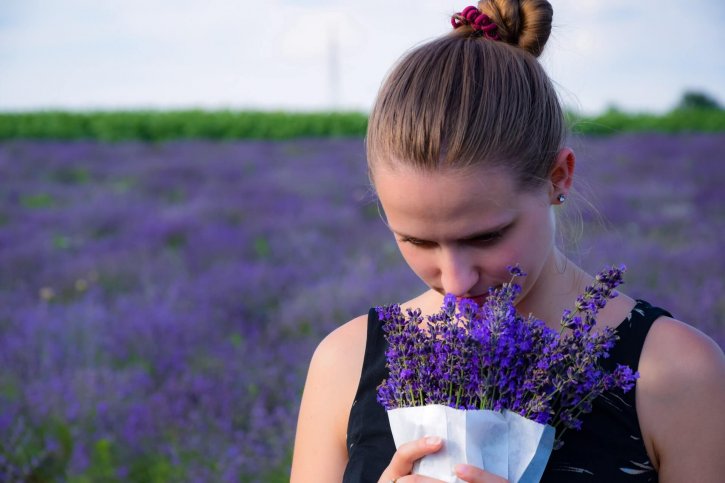
Hair Growth
Anyone struggling with thinning or brittle hair knows the frustration of seeing precious strands go down the drain. Lavender can help keep the hair on the head and encourage new hair growth.
Lavender stimulates the scalp to produce new hair growth, with hair being thicker and less prone to breakage. Because lavender works on the skin, lavender may assist with issues like pattern baldness and alopecia.
Healthier Hair
Hair oils come from the scalp. The number of oils that your scalp produces can affect the health of your scalp and hair. Due to lavender’s oil balancing properties, both the scalp and hair can improve with the consistent use of lavender.
When the scalp produces too much oil, dandruff and fungal infections can occur. Excess oil also causes the hair to become oily and limp, making it difficult to style. On the other hand, too little oils can cause dry, flaky skin on the scalp. It can also make hair brittle and break. Lavender balances hair oils to produce healthier, stronger hair—keeping hair on the head and out of the drain.
Lavender to treat Anxiety and Headaches
Lavender’s scent is warm and inviting because it calms the nervous system down. Lavender oils are added to commercial lotions for babies and children to help them settle down for bedtime. It’s no wonder that lavender is the most used essential oil for sleep.
Anxiety and Stress
Scientific research backs lavender’s popularity as a stress reliever. Studies using lavender as a treatment for anxiety have proven its ability to help treat mood disorders, anxiety, and stress. Lavender can alleviate symptoms of anxiety, like racing thoughts and chronic tensions. And because severe anxiety can lead to depression, anxiety can also help prevent feelings of sadness and helplessness.
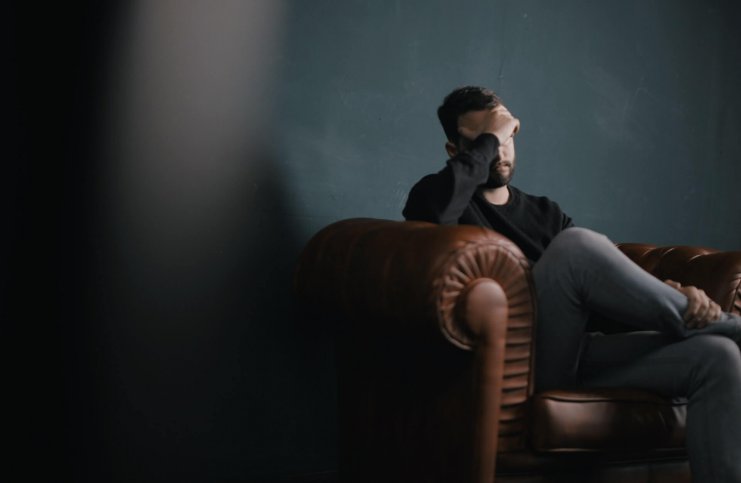
Headaches
The next time you’re looking for a medication-free way to relieve your headache, try some lavender. Because lavender soothes the nervous system, it works wonders on tension headaches and migraines. Lavender can decrease the sensitivity to sounds and light that can occur during a severe migraine. Lavender is also thought to decrease the frequency of headaches, making it an ideal method for headache prevention.
Sleep
Because lavender helps the body wind down, it can help induce sleep and make it last through the night. People who have insomnia often find themselves stressed and agitated, unable to sleep. Lavender can aid in decreasing anxious emotions, allowing a person to fall asleep and sleep soundly through the night. Many lotions and fabric sprays that are meant to put people to sleep contain lavender for this reason!
Lavender Oil for Fleas and Bed Bugs
Anyone who’s had a pet knows how difficult it is to keep fleas and ticks away without using harsh chemicals or medications. These annoying bugs can make pets miserable and leave bites on humans. Lavender oil can replace dangerous bug repellents and medicines. Just a couple of drops of lavender mixed into a pet’s shampoo can keep fleas away and treat bites.
How to Use Lavender Oil
Consult a doctor or veterinarian before using natural lavender oils on an infant, young child, or pet.
As with any essential oil, a few drops goes a long way. Essential oils are concentrated, and using too much can lead to adverse reactions. For instance, just a couple of drops of lavender oil added to an aromatherapy diffuser can help treat anxiety or headaches. The scent the diffuser releases is enough to soothe, without becoming overwhelming.
Lavender essential oils applied topically, require dilution into a carrier oil like jojoba or coconut. For lavender, a 1:1 ratio of lavender oil or a carrier oil works well. Adding this mix to lotions, creams, or shampoos can make lavender easy to use. Dropping some lavender oil into a bath can make the bath feel a little more decadent, relax the mind, and also make skin smooth and supple.
An effortless way to use lavender involves water, a few drops of lavender oil, and a spray bottle. By mixing water and lavender oil in the spray bottle, and spraying bedding and furniture, the scent of lavender is incorporated into the environment — calming everyone who enters.

